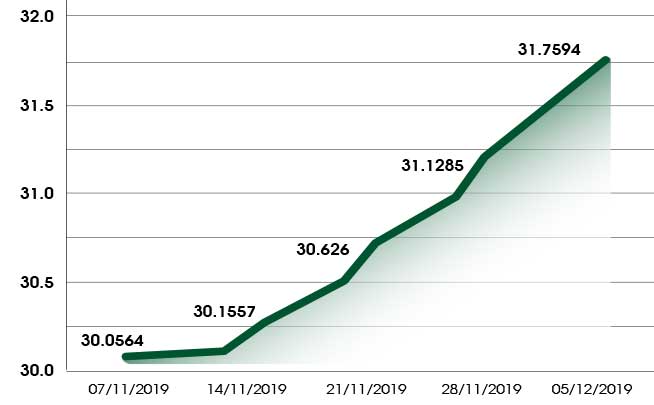
Life Matters | Oct 22,2022
Jul 10 , 2020
By Asseged G. Medhin
There is only one thing we can do as a society to rid ourselves of corruption - join the fight to combat it ourselves. This does not mean vigilantism but rather the harder and more complex task of bringing about attitudinal change. That is where the emphasis should be and no law or form of punishment can compensate for it.
Why attitudinal change? Why is it the most effective weapon?
This largely depends on our definition of what corruption is. It is a system failure that produces unintended outcomes for those within the specific institution. It is the entry gate toward the pain points that lead to failure.
A change in attitude will produce a tremendous outcome on value systems, shaping resource management and closing gaps that cannot possibly be addressed through prevention policies or the threat of punishment. People are just too innovative to account for every single one of their wrongdoings all the time.
A transformed mind accelerates improvements in the context of value systems and has the best chance of addressing the distortions that are created by having a lopsided understanding of the institutions that people belong to. A good seed of knowledge on the other hand reinforces the foundation of growth in advancing the capacity of each participant to absorb changes.
The root of corruption should not be viewed as greed, for power or for money. It instead has to do with the inability to recognise strengths and take a long-term view. It is the abuse of a system that leads to the chipping away of everything that can make it work properly.
The best evidence of this is to ask people who have engaged in inappropriate dealings that we may have met in our daily lives. They will rarely say that they are proud of holding themselves with such conduct, that they are not embarrassed with their resort to illegal means to extract resources from institutions.
They will explain that they are corrupt, because everyone else is; that if they do not do it, someone else will; that this is the best way forward. The most corrupt bureaucrats and business people who evade taxes will reveal that they are doing what they are doing because of subtle compulsions. They claim that at the core of their hearts, they do not like what they are doing.
Even some of those who know of their corruption stand by them, with the belief that they give back and compensate for their ill deeds. Even after being outed, such people will continue to command the respect of the society in which they live with the sheer succor of the amount of money they amass.
As long as there is a value system that accepts and harbours such behaviour, it would be impossible to root out without effecting attitudinal change. When value systems are diluted and diverted to benefit the few, all those who benefit from the spoils will do everything in their power to maintain the status quo. Most importantly, they will institute clientelism, where personal favours are handed out, which in turn is used to legitimise the system.
Attitudinal changes are thus indispensable. It can be achieved through a strong and workable governance model. As important as bottom-up approaches are, it would be hard to institutionalise a strong value system that is sanctioned from the top. If it is change that is needed, it should be obvious that the revolution should come from those that are the biggest offenders. Without their commitment, it will not be easy to realise the change that is needed.
PUBLISHED ON
Jul 10,2020 [ VOL
21 , NO
1054]


Life Matters | Oct 22,2022

Editorial | May 31,2020

Editorial | Nov 14,2020

Radar | Sep 28,2019

Fortune News | Dec 07,2019

Agenda | Nov 23,2019

Fortune News | Mar 05,2022

Fortune News | Jan 02,2021

Radar | Feb 27,2021

Fortune News | Oct 17,2020

My Opinion | 131967 Views | Aug 14,2021

My Opinion | 128357 Views | Aug 21,2021

My Opinion | 126294 Views | Sep 10,2021

My Opinion | 123910 Views | Aug 07,2021

Dec 22 , 2024 . By TIZITA SHEWAFERAW
Charged with transforming colossal state-owned enterprises into modern and competitiv...

Aug 18 , 2024 . By AKSAH ITALO
Although predictable Yonas Zerihun's job in the ride-hailing service is not immune to...

Jul 28 , 2024 . By TIZITA SHEWAFERAW
Unhabitual, perhaps too many, Samuel Gebreyohannes, 38, used to occasionally enjoy a couple of beers at breakfast. However, he recently swit...

Jul 13 , 2024 . By AKSAH ITALO
Investors who rely on tractors, trucks, and field vehicles for commuting, transporting commodities, and f...

Jul 5 , 2025
Six years ago, Ethiopia was the darling of international liberal commentators. A year...

Jun 28 , 2025
Meseret Damtie, the assertive auditor general, has never been shy about naming names...

Jun 21 , 2025
A well-worn adage says, “Budget is not destiny, but it is direction.” Examining t...

Jun 14 , 2025
Yet again, the Horn of Africa is bracing for trouble. A region already frayed by wars...

Jul 6 , 2025 . By BEZAWIT HULUAGER
The federal legislature gave Prime Minister Abiy Ahmed (PhD) what he wanted: a 1.9 tr...

Jul 6 , 2025 . By YITBAREK GETACHEW
In a city rising skyward at breakneck speed, a reckoning has arrived. Authorities in...

Jul 6 , 2025 . By NAHOM AYELE
A landmark directive from the Ministry of Finance signals a paradigm shift in the cou...

Jul 6 , 2025 . By NAHOM AYELE
Awash Bank has announced plans to establish a dedicated investment banking subsidiary...